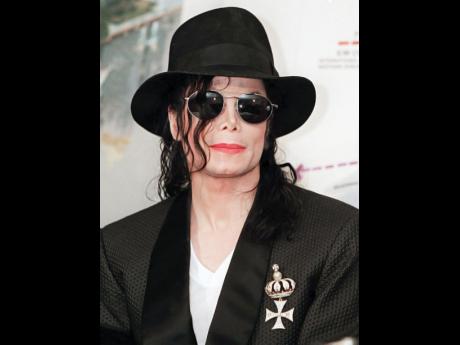Music video consumption 35 years after Thriller
Thirty-five years ago, millions of Americans and people worldwide were glued to their TV screens, awaiting the debut of Michael Jackson's Thriller music video on the MTV channel.
The 13-minute video was the first of its kind, both in visuals and cost. In her book, Michael Jackson: King of Pop, author Mary Pratt shares that the video broke barriers in music-video production as it cost US$500,000 to make at the time.
Directed by John Landis, Jackson is out with his lady interest on the night of a full moon when they are approached by zombies. In an eye-popping, nail-gripping, grizzly transformation, Jackson joins the lot, showcasing the unforgettable 'Thriller' dance move as the frightened woman runs for her life. Decades later, the video is revered as the greatest pop video of all time and, perhaps, parallels the song's success.
Other music videos have since attracted awe, debate, controversy, and criticism, including Kanye West's Famous and BeyoncÈ's visual Lemonade album released in 2016. Today, people no longer have to sit by their television sets for a music-video premier because of online platforms like YouTube.
But are people still interested and invested in music videos? Esteemed film director Jay Will believes so.
"The way people consume media has changed. People are not really looking to TV anymore," he told The Sunday Gleaner. "People are on the Internet looking out for videos from the latest artistes. They are on their VEVO, their YouTube, and they will sit up all night and wait for the latest Shenseea and Nicki Minaj videos just like how someone was sitting up in 1983 waiting for Michael's video. It's just not as crazy as they would have seen the artiste earlier on the artiste's Instagram live."
Greater Access to Entertainers
With advanced technologies, Jay Will said fans now have greater access to entertainers compared to the pre-Internet era.
"If you wanted to see Michael Jackson, then you would have to buy a US$600 ticket to see him perform, which was rare, or see him on TV at some point for an interview or sit down and wait for a music video," he said.
Having spent more than a decade directing music videos for acts like Sean Paul, Alkaline, Elephant Man, and Wayne Marshall, Jay Will said that music videos are even more relevant as they act as cross-marketing tools.
"It is the most direct form of a marketing tool that is available for artistes to promote their image, brand, themselves ... any product they are pushing and even products that belong to other people," he said. "It's bigger than just a song. A music video is about trends - new cars, new clothes. Companies and brands are paying for music videos just for an artiste to be sitting in the same camera shot with a brand-new Fiat or Mercedes Benz, and Mercedes Benz Company will pay for the entire music video."
Without a sponsor, cost can affect the frequency of music-video releases.
"Budget-wise, people don't have money anymore," he said. "Locally, I think people are using their rent money and small-business money that they have to invest in themselves when in the US, there are record labels that have budgets to invest in music videos."
The music landscape has further evolved as several artistes like Vybz Kartel, Alkaline, and Rihanna manage to have popular songs without any accompanying music video. But Jay Will said that this does not mean that music videos are on the brink of decline.
"What you're seeing now is an increase in the amount of songs that populate the airwaves compared to years ago when people used to spend time and create quality music and albums," he said.
"You would have seven good songs and seven music videos to accompany them. Now an artiste will put out 40 songs, trying to find a hit, and only three will be good. So you'll end up with 40 songs on the airwaves and no video, which makes it seem like fewer music videos are being made when really, it's just an increase in songs. Some artistes don't have to put out as much effort into their work because of their popularity and fan base, so they don't necessarily have to have to put out videos to get views or a hit song," he said.

